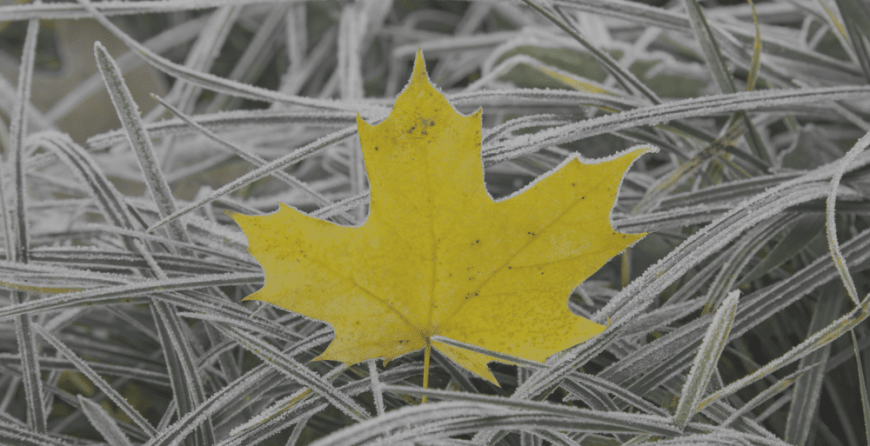 Do you slave over your organic garden all spring and summer, then go into a panic once the signs of colder weather start rolling in? Don’t worry too much. You can take these precautionary measures to help ensure that you don’t lose your organic garden to frost during colder months.
Do you slave over your organic garden all spring and summer, then go into a panic once the signs of colder weather start rolling in? Don’t worry too much. You can take these precautionary measures to help ensure that you don’t lose your organic garden to frost during colder months.
Strategically water your organic garden
Try watering your garden a few days before the frost is expected. This may seem crazy, but wet soil can hold more heat than dry soil. Make sure not to saturate the soil through, is the soil is very damp at the coldest temperature then you run the risk of frost heave. A frost heave is an upwards swelling of soil during freezing conditions caused by an increasing presence of ice as it grows towards the surface. A frost heave can be very detrimental to your crops.
Cover your plants
One of the easiest ways to protect your organic garden from frost is by covering it. This seems like a no-brainer, but it can be surprising how much difference a cover makes. Some experts use blankets, sheets, and even burlap sacks. Whatever you use as a cover, make sure that it is loosely draped over your garden and secured to the ground at certain points, preferably with stakes. If you use a heavier material, consider supporting it above the garden with wire so that it’s weight does not crush your plants. Also, make sure to remove the cover once the frost is clear and the sun is shining. If you forget to remove the cover, your organic garden could suffocate.
Mulch your organic garden
Mulch can help control and retain the ideal amount of moisture in your organic garden. Not only does mulch lock in moisture, but during the cold months, it can hold heat in as well. This value added by mulch will go the extra mile is protecting against frost. Try to keep the depth of mulch at about 2 to 3 inches.
Use raised beds
Planting in raised beds offers many benefits, including added protection against the cold and frost. Cold air tends to collect in the sunken areas or your garden rather than higher plateaus. Therefore, raised beds get your valuable crops up and away from the most dangerous zones for frost. Raised beds can also help affix and maintain your garden cover too. Wooden beds can provide a handy means to attach the ends of your cover so that it doesn’t crush your crops.
Use cold frames
A cold frame is a transparent-roofed box, built low to the ground. It’s used to protect plants from adverse weather, primarily excessive cold or wet. The transparent top admits sunlight and prevents heat escape via convection that would otherwise occur. Essentially, a cold frame functions as a miniature greenhouse to extend the growing season.


